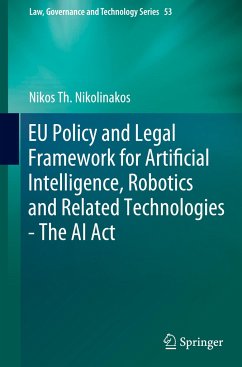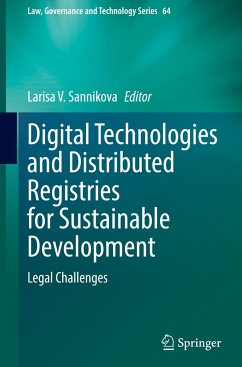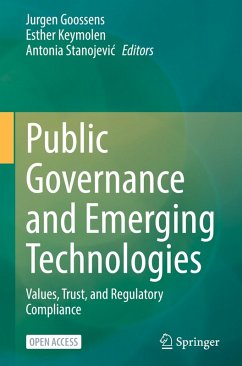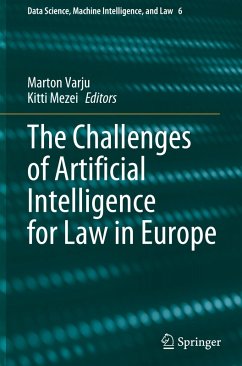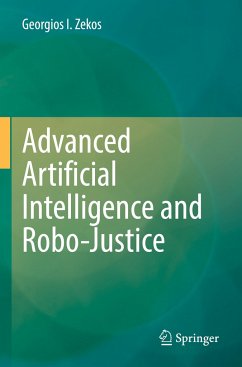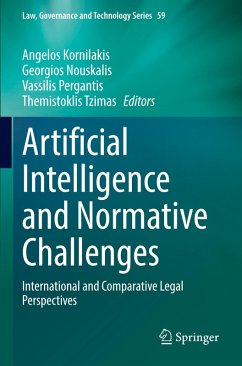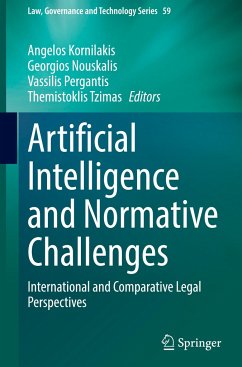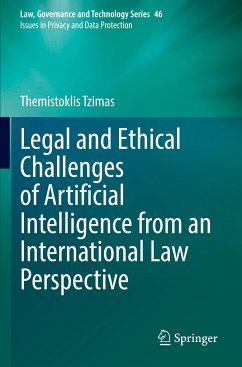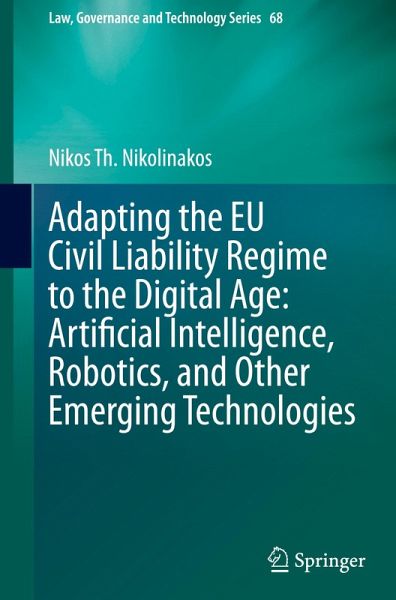
Adapting the EU Civil Liability Regime to the Digital Age: Artificial Intelligence, Robotics, and Other Emerging Technologies

PAYBACK Punkte
43 °P sammeln!
This book highlights the challenges that artificial intelligence (AI), robotics, the Internet of Things (IoT), and other emerging digital technologies pose to existing EU and national liability legislation, while also tracing the evolution of the relevant EU policy and legal framework.Recognising that Member States' current national fault-based liability rules are ill-suited to handle compensation claims for AI-related harm, the book emphasises the difficulty victims face in proving fault and causation due to AI's unique characteristics, such as autonomy and opacity ("black box" effect). Simil...
This book highlights the challenges that artificial intelligence (AI), robotics, the Internet of Things (IoT), and other emerging digital technologies pose to existing EU and national liability legislation, while also tracing the evolution of the relevant EU policy and legal framework.
Recognising that Member States' current national fault-based liability rules are ill-suited to handle compensation claims for AI-related harm, the book emphasises the difficulty victims face in proving fault and causation due to AI's unique characteristics, such as autonomy and opacity ("black box" effect). Similarly, the current Product Liability Directive (PLD) has several shortcomings: certain products, economic actors, and types of damage in the digital and circular economy are not covered under strict liability; proving defectiveness and establishing a causal link with damage, especially for complex products, is often challenging; in addition, liability claims are subject to restrictive limits and thresholds.
The book discusses in detail the European Commission's proposal for a Directive on harmonising civil liability rules for damage caused by AI systems (the 'proposed AI Liability Directive'). It also offers a thorough analysis of the European Commission's proposal for a revised Product Liability Directive, compares it with the positions of the Council of the EU and the European Parliament, and discusses the final text approved by the Plenary of the European Parliament in March 2024.
The book incorporates comments from various parties, offering insights into the approaches of EU institutions and the conflicting interests among stakeholders. Presenting carefully grounded arguments, this volume serves as a valuable resource for understanding the interplay between policy and law within the new EU liability framework for AI and other innovative products. This forthcoming EU regime represents a significant shift in the liability landscape, potentially heightening litigation risks. Its success will depend on achieving the EU's overarching objective: ensuring fair compensation while fostering technological innovation.
Recognising that Member States' current national fault-based liability rules are ill-suited to handle compensation claims for AI-related harm, the book emphasises the difficulty victims face in proving fault and causation due to AI's unique characteristics, such as autonomy and opacity ("black box" effect). Similarly, the current Product Liability Directive (PLD) has several shortcomings: certain products, economic actors, and types of damage in the digital and circular economy are not covered under strict liability; proving defectiveness and establishing a causal link with damage, especially for complex products, is often challenging; in addition, liability claims are subject to restrictive limits and thresholds.
The book discusses in detail the European Commission's proposal for a Directive on harmonising civil liability rules for damage caused by AI systems (the 'proposed AI Liability Directive'). It also offers a thorough analysis of the European Commission's proposal for a revised Product Liability Directive, compares it with the positions of the Council of the EU and the European Parliament, and discusses the final text approved by the Plenary of the European Parliament in March 2024.
The book incorporates comments from various parties, offering insights into the approaches of EU institutions and the conflicting interests among stakeholders. Presenting carefully grounded arguments, this volume serves as a valuable resource for understanding the interplay between policy and law within the new EU liability framework for AI and other innovative products. This forthcoming EU regime represents a significant shift in the liability landscape, potentially heightening litigation risks. Its success will depend on achieving the EU's overarching objective: ensuring fair compensation while fostering technological innovation.



